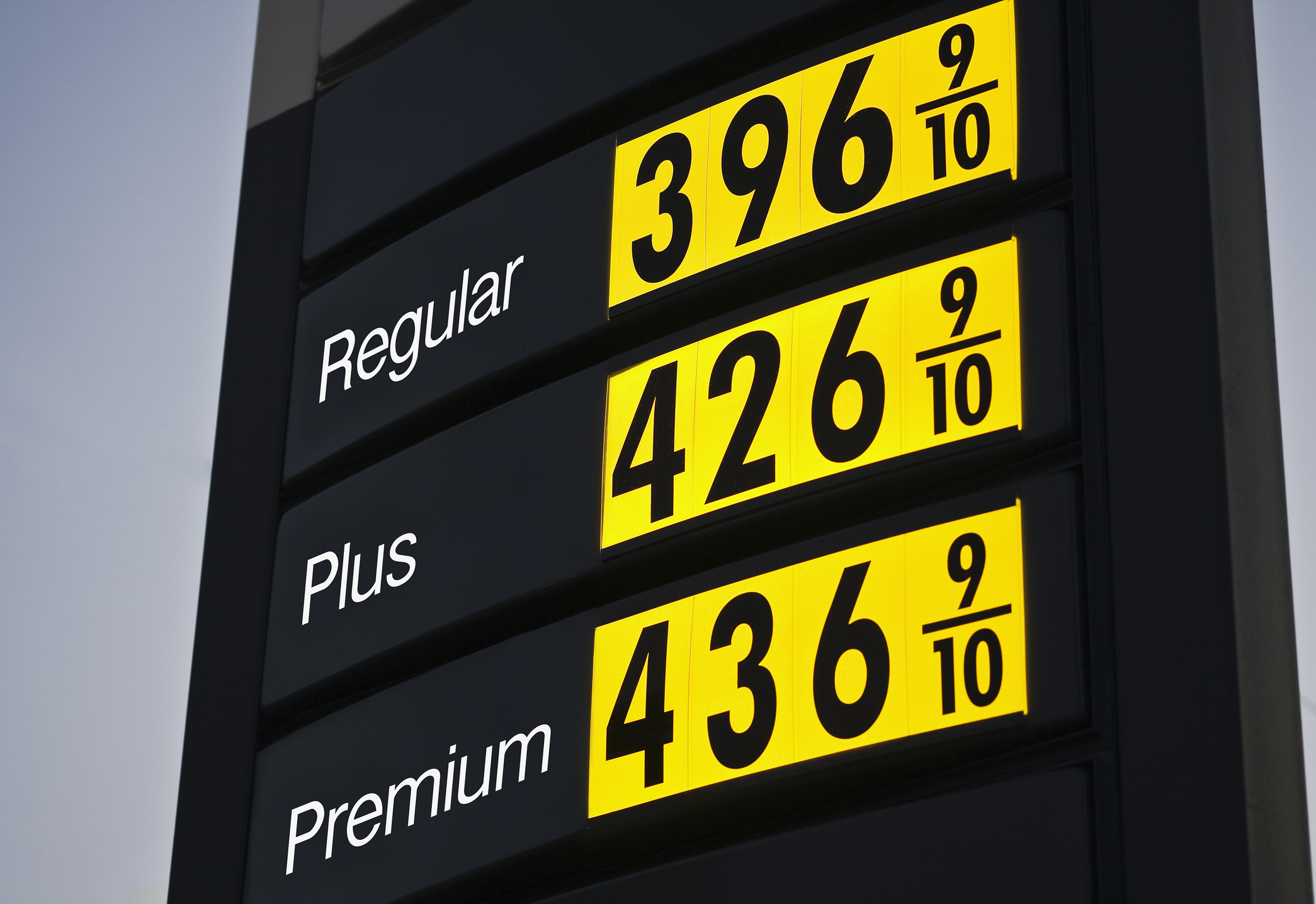Driving a Hard Bargain on a New 2018 Car
Our tips on negotiating strategies and getting a new ride that will hold its value well.


Profit and prosper with the best of Kiplinger's advice on investing, taxes, retirement, personal finance and much more. Delivered daily. Enter your email in the box and click Sign Me Up.
You are now subscribed
Your newsletter sign-up was successful
Want to add more newsletters?

Delivered daily
Kiplinger Today
Profit and prosper with the best of Kiplinger's advice on investing, taxes, retirement, personal finance and much more delivered daily. Smart money moves start here.

Sent five days a week
Kiplinger A Step Ahead
Get practical help to make better financial decisions in your everyday life, from spending to savings on top deals.

Delivered daily
Kiplinger Closing Bell
Get today's biggest financial and investing headlines delivered to your inbox every day the U.S. stock market is open.

Sent twice a week
Kiplinger Adviser Intel
Financial pros across the country share best practices and fresh tactics to preserve and grow your wealth.

Delivered weekly
Kiplinger Tax Tips
Trim your federal and state tax bills with practical tax-planning and tax-cutting strategies.

Sent twice a week
Kiplinger Retirement Tips
Your twice-a-week guide to planning and enjoying a financially secure and richly rewarding retirement

Sent bimonthly.
Kiplinger Adviser Angle
Insights for advisers, wealth managers and other financial professionals.

Sent twice a week
Kiplinger Investing Weekly
Your twice-a-week roundup of promising stocks, funds, companies and industries you should consider, ones you should avoid, and why.

Sent weekly for six weeks
Kiplinger Invest for Retirement
Your step-by-step six-part series on how to invest for retirement, from devising a successful strategy to exactly which investments to choose.
With car sales slowing from years of record highs, carmakers are ramping up incentive: cash rebates or low-interest-rate financing. But getting the lowest price possible still requires some smart tactics.
Negotiate. Assuming you aren’t shopping for a hot model, you can probably haggle with the dealer until you get close to the “invoice” price, or what a manufacturer charges the dealer for the car. The invoice price may be as little as 1% below sticker for a popular mass-market vehicle, or as much as 6% for a luxury model.
Dealers receive bonuses and other incentives from manufacturers to hit sales targets, enabling them to sell a car at invoice or slightly above and still make a slim profit. (Be sure to negotiate the price before any rebates or other incentives are factored in.) And remember that dealers make most of their profits from service, accessories, extended warranties and sales of used vehicles—pretty much everything except the sale of new cars.
From just $107.88 $24.99 for Kiplinger Personal Finance
Become a smarter, better informed investor. Subscribe from just $107.88 $24.99, plus get up to 4 Special Issues

Sign up for Kiplinger’s Free Newsletters
Profit and prosper with the best of expert advice on investing, taxes, retirement, personal finance and more - straight to your e-mail.
Profit and prosper with the best of expert advice - straight to your e-mail.
Cars that sit on dealers’ lots for months are more likely to sell at or below invoice than a coveted model in short supply. Buicks recently sat for an average 149 days, making them the second-slowest-selling cars on the market, according to Kelley Blue Book. By contrast, Audis and Subarus sell the fastest—they’re gone after just 40 days, giving dealers much less incentive to bend on the price. You’ll also save if you buy the outgoing model, once the new model hits dealers’ lots.
Check the resale value.
Saving a few bucks up front may be less valuable than picking a car with strong resale value. Cars depreciate at an average rate of 15% a year, says Eric Lyman, vice president of industry insights at TrueCar. One positive factor if you buy a sedan, he adds, is that resale values should start to improve over the next few years as supply tapers off in the used-car market (while SUVs proliferate, potentially hurting their resale values). Resale values and other costs of ownership can be found on kbb.com.
Stripped-down models without any options (the kind you see at rental agencies) aren’t very appealing to car dealers, but it’s unlikely you’ll get much extra for a car with every option and high-tech doodad tacked on, says Karl Brauer, executive publisher of Kelley Blue Book and kbb.com. “Everyone wants air-conditioning, power windows and Bluetooth, but not necessarily a sunroof and rear heated seats,” Brauer says. Go for a Goldilocks car: a well-equipped model, not too basic and not fully loaded.
Be wary of an all-new model.
Try to buy a car one year after a full redesign or launch of an all-new model. Or buy a “mid-cycle refresh”—a car that has been revised and updated by the manufacturer about three to four years after it first came out. All-new or fully redesigned models tend to have kinks that need to be ironed out, so waiting a year is usually a good idea. And a model refresh usually includes significant improvements. In both cases, these cars should hold a bit more resale value than the outgoing model, says Brauer.
Profit and prosper with the best of Kiplinger's advice on investing, taxes, retirement, personal finance and much more. Delivered daily. Enter your email in the box and click Sign Me Up.

-
 Dow Leads in Mixed Session on Amgen Earnings: Stock Market Today
Dow Leads in Mixed Session on Amgen Earnings: Stock Market TodayThe rest of Wall Street struggled as Advanced Micro Devices earnings caused a chip-stock sell-off.
-
 How to Watch the 2026 Winter Olympics Without Overpaying
How to Watch the 2026 Winter Olympics Without OverpayingHere’s how to stream the 2026 Winter Olympics live, including low-cost viewing options, Peacock access and ways to catch your favorite athletes and events from anywhere.
-
 Here’s How to Stream the Super Bowl for Less
Here’s How to Stream the Super Bowl for LessWe'll show you the least expensive ways to stream football's biggest event.
-
 10 Things You Should Know About Buying a Car Today, Even if You've Bought Before
10 Things You Should Know About Buying a Car Today, Even if You've Bought BeforeIf buying a car is on your to-do list, and it's been a while since you went shopping for a new one, this guide will help avoid any nasty shocks in the showroom.
-
 Get the Best Car Deal in Retirement: Here's the Trick
Get the Best Car Deal in Retirement: Here's the TrickPlanning on shopping for a new car this Labor Day weekend? Here’s how to haggle for a better price, even though you're retired.
-
 7 Gas-Saving Tips That Actually Work
7 Gas-Saving Tips That Actually WorkThese are gas-saving tips that will actually work for you and your car this year.
-
 Want to Lease an EV? The Tax Credit 'Loophole' for That Is Going Away Soon
Want to Lease an EV? The Tax Credit 'Loophole' for That Is Going Away SoonTax Credits If you are deciding whether to lease or buy an electric vehicle, here is what you need to know about how the EV lease tax credit works now that it will be eliminated under Trump's new tax law.
-
 Car Buying in a Topsy-Turvy Market
Car Buying in a Topsy-Turvy MarketYou need a new car? Good luck with that! What should you do? We've got some answers.
-
 Watch Out for Flood-Damaged Cars from Hurricane Ian
Watch Out for Flood-Damaged Cars from Hurricane IanBuying & Leasing a Car In the wake of Hurricane Ian, more flood-damaged cars may hit the market. Car prices may rise further because of increased demand as well.
-
 Car Buyers: The 3-Day Grace Period Is Just a Myth!
Car Buyers: The 3-Day Grace Period Is Just a Myth!Buying & Leasing a Car Many car buyers think they have three days after making a purchase to return a car. Here’s where they’re going wrong, and what they should do instead to get a decent used car.
-
 PODCAST: Car-Buying in an Inflated Market with Jenni Newman
PODCAST: Car-Buying in an Inflated Market with Jenni NewmanBuying & Leasing a Car With cars both scarce and expensive these days, what to do if you want – or need – a new ride? Car-buying strategist Jenni Newman of Cars.com shares some tips. Also, more on the magical 9% savings bond.